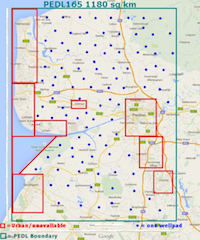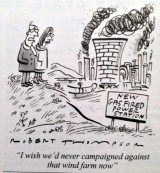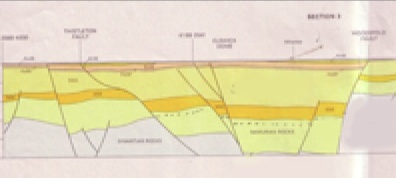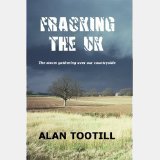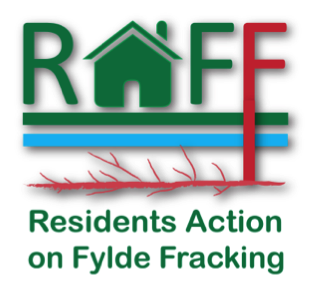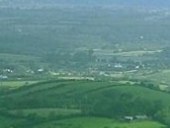LCC tell the government what they think!
Today, 17 December 2015, there was a meeting of the Full Council of LCC
We understand that the following motion was put to a vote
Agenda Part C – Notices of Motion submitted under Procedural Standing Order 14. 2.1(a)
“1. By County Councillor Steve Holgate:
Lancashire County Council has spent significant time and resources ensuring that the process of determining planning applications on Fracking in Lancashire has been open, transparent and well informed.
The Development Control Committee received evidence and opinion from organisations both in favour of and opposed to Fracking, as well as from local resident groups, local businesses and public health professionals.
Whilst national government is rightly entitled to take a view and determine national policy regarding energy, we believe that the determination of individual planning applications should remain with the County Council as it is best able to consider local planning issues.
The Secretary of State is a member of a cabinet with a clear policy in favour of Fracking and he has made statements in favour of Fracking.
It is therefore inappropriate for him to determine the planning appeals on Roseacre Wood and Preston New Road in Lancashire because of clear evidence of pre- determination.
Lancashire County Council requests that the Secretary of State takes no part in the final determination of the Preston New Road or Roseacre Wood appeal decisions.
Council instructs the chief executive of Lancashire County Council to write to the Prime Minister and Secretary of State informing them of the opinions of the County Council.”
We believe that the motion was carried with
45 for
1 against
18 abstentions
Well done LCC for showing some backbone and setting an example for the rest of the country!
A Tale of Two Martyrs
 480 years ago a scholar and theologian named William Tyndale was put to death, by being strangled and burned, for having committed the heresy of translating the bible into English. We have learned from The Bee that today in Preston a close namesake, Stephen Tindale – will address a vigil being held by the fracking front group Backing Fracking – “The event will also be attended by former Greenpeace executive director and co-founder of Climate Answers, Stephen Tindale, who will address the gathering and explain the positive role that shale gas can play in helping Britain and Europe meet their climate change targets.”
480 years ago a scholar and theologian named William Tyndale was put to death, by being strangled and burned, for having committed the heresy of translating the bible into English. We have learned from The Bee that today in Preston a close namesake, Stephen Tindale – will address a vigil being held by the fracking front group Backing Fracking – “The event will also be attended by former Greenpeace executive director and co-founder of Climate Answers, Stephen Tindale, who will address the gathering and explain the positive role that shale gas can play in helping Britain and Europe meet their climate change targets.”
[Update – the event in Preston did not take place. Instead, as far as we can ascertain Mr Tindale addressed a crowd of 6 people on the prom in Blackpool. There has been no news coverage of the event at all so we cannot confirm more than what we have seen so far in photos and text published by the group Backing Fracking]
Sadly though, Stephen is not coming to spread enlightenment. One might imagine that Stephen’s history as an ex employee of Greenpeace would mean that he would oppose shale gas extraction, but he is coming to support it. We thought we ought to take a look at what he has said on the subject in the past.
In 2014 Stephen wrote an article on the Climate Answers website
In this article he wrote that shale gas
“is not low-carbon enough for long term decarbonisation, unless it is burnt in power stations with carbon capture and storage (CCS).”
When he made this statement the future of CCS looked bright – The government had a £1bn competition to develop carbon capture and Deputy Prime Minister Nick Clegg and environment secretary Ed Davey both expressed their backing for CCS. Mr Davey said in 2014 “It shows the UK’s leading in the low-carbon challenge to tackle climate change and get cleaner energy.”
However, the UK government scrapped the funding for it’s flagship CCS projects in its 2015 spending review in late November, leaving the claim that shale gas can act as a bridge fuel stranded high and dry. Without CCS shale gas would be a bridge to nowhere if even the limited ambition of the 2 degrees target agreed at COP 21 in Paris is to be realised.
So based on what he wrote and what has happened since we know that Mr Tindale must now logically oppose the long term use of shale gas
So what of the short term?
In the same article Mr Tindale observes that
“even without CCS, shale gas is better than coal.”
This of course is a perfect example of a false choice – coal is not the only strategic alternative (although to be fair Mr Tindale might claim it is the only commercially viable alternative available today)
He supports his statement with this:
“Shale gas from properly regulated sites has a lower carbon footprint than coal does.”
(Our emphasis)
However, he clearly did not, even in 2014, have confidence in the regulators in the UK, as he points out that
“The Environment Agency has a good track record in regulating pollution, but needs to be adequately resourced. Like other public bodies in this age of austerity, it is having its resources reduced substantially. The UK government must now accept – and say publicly – that UK shale gas extraction will only be consistent with our climate obligations if it is overseen by a well-funded regulator.”
Following on from this in Mr Osborne’s Autumn Statement 2015 it was announced that the already beleaguered environment agency would have its budget slashed by a further 15% whilst DECC would lose 22% over the next 4 years.
Clearly the commitment from government that Mr Tindale said was a pre-requisite is so far from being reality that he must now be extremely concerned.
It should be noted that these are in addition to the austerity cuts about which Mr Tindale expressed his real concerns in his 2014 article . Could he seriously claim today that he is satisfied with the capacity of the regulators in the UK to “properly regulate” the shale gas industry?
In his 2014 article Mr Tindale also stated that
“Shale gas will not prevent investment into renewables.”
but, as we all know, this is precisely what has happened, with the Government announcing their intention to treat fracking applications as Nationally Significant Energy Infrastructure Projects whilst at the same time destroying the solar power industry by announcing a 98 per cent feed-in tariff spending cut. The resulting uncertainty and lack of confidence in the consistency of government policy-making, ironically also threatened investment in shale gas.
His case for short term use of shale as seems to be predicated on the idea that
Gas is less bad in climate terms, and also a more efficient back-up fuel than coal is for intermittent renewables like wind and solar power. The first climate priority is to stop burning coal.
Whilst the subject of fugitive methane emissions, which is the fulcrum on which this argument is balanced, remains hotly debated the evidence emerging from the USA seems to contradict this statement. The original research by Howarth, Santoro and Igraffea which suggested that the footprint for shale gas is greater than that for conventional gas or oil when viewed on any time horizon, but particularly so over 20 years has been contested by the industry with contradictory studies being put forward, but recent research (Nov 15) has shown that methane emissions are 90% higher than the previous figure from the Environmental Protection Agency’s Greenhouse Gas Inventory. This last paper cannot be easily dismissed by the pro-frackers as it is is the most sweeping study to emerge from the Environmental Defense Fund’s $18-million project to quantify methane leaks from the natural gas industry. It was written by 20 co-authors from 13 institutions, including universities, government labs, EDF and private research firms.
Reacting to this news, Prof Robert Howarth, one of the authors of the report which originally brought this issue to our attention, stated “Using this new information as well as other independent studies on methane emissions published since 2011, and the latest information on the climate influence of methane compared to carbon dioxide from the latest synthesis report from the Intergovernmental Panel on Climate Change released in September of this year, it is clear that natural gas is no bridge fuel.”
By September 2015, however, Mr Tindale in a new article, “The Climate Case For Shale Gas“, appears to have dropped his arguments for long term use of fracking as he has realised that the required CCS is now just a mirage.
Instead he now concentrates his arguments on the premise he stated in the second part of his 2014 article, that shale is cleaner than coal and better than imported LNG.
“Renewables are better. But we cannot afford to make the best the enemy of the good. Only seven per cent of UK energy came from renewables in 2013. Even if the goal is to get all energy from renewables, this will not be achieved any time soon. The only country that has set itself a target to reach 100 per cent renewables for all energy (heating and transport, as well as electricity) is Denmark. The Danes have a reasonable chance of meeting their target year of 2050 because they are well ahead of the UK.”
and
Shale gas is better for the climate than coal or LNG. The Task Force on Shale Gas, of which I am an advisor, published a report on the climate impact today. This concludes that, provided it is well regulated to minimise emissions of methane (a powerful greenhouse gas), fracking does not result in higher emissions than conventional gas extraction does. So shale gas is much better for the climate than coal is. In 2011 three Cornell University professors published a paper arguing that, because of methane emissions during fracking, shale gas is actually worse for the climate than coal is. The task force does not agree; they cite instead a forthcoming paper from the Sustainable Gas Institute at Imperial College which reviews 424 academic, government, industry and NGO publications, and concludes that, even taking account of emissions from the supply chain, shale gas is only 41-64 per cent as climate-damaging as coal is.”
There are several problems with Mr Tindale’s argument here.
The argument on fugitive emissions looks set to run and run, but even an industry PR admitted recently at COP21 that the argument against coal was struggling due to emissions . Margaret Mistry, Head of Sustainability Communication at Statoil, stated:
“Methane emissions and reducing those, I think that the goal there that we’re all working towards as an industry is to demonstrate that natural gas can compete with coal when it comes to climate effects.”
Clearly she realises that they are still working to demonstrate that shale can even compete with coal in terms of full life-cycle emissions – not that it is proven (as Mr Tindale suggests) that “Shale gas is better for the climate than coal”.
Another issue is that there is no chance that fracking will be developed in the UK in time to replace coal. Even the most optimistic forecast don’t foresee extraction at a commercial scale before the early years of the next decade and without CCS it would be impossible to continue beyond 2030 without busting our carbon budgets. Even Mr Tindale agrees with this as he Tweeted this week
It’s ok until 2030, but not for longer than that if UK is to meet carbon budgets
It seems to me that it would be hopelessly naive to expect that an industry which gets into its stride in the early 2020s would then voluntarily agree to be shut down when CCS fails to materialise at a commercially viable scale. Stephen though is full of Panglossian optimism as he tweeted this week that the Government would be able to shut the industry down if necessary
By tightening the Emissions Performance Standard and applying it to existing capacity as well as new.
We’ll wish him luck with that one. We don’t share his faith. Indeed we think being a little bit fracked is a bit like being a little bit pregnant.
Additionally in 2012 the Committee on Climate Change has said that the construction of significant new gas-fired power generation capacity would be “completely incompatible” with the UK’s legally binding climate change targets.
Perhaps most crushingly though his own Task Force on Shale Gas is on record as stating:
“To ensure the longer-term adoption of renewables and low carbon energy, the Task Force is calling on Government to expedite the development of Carbon Capture and Storage (CCS), and measures should be taken to ring-fence Government energy revenue streams for investment in R&D and innovation in renewables and low carbon energy generation, storage and distribution.”
The government however has recently performed a U-turn on CCS and far from investing R&D and development of renewables it has removed support from them, thus chopping the legs from under what was a burgeoning industry. Only this week, Chris Smith, the head of the Task Force described the government’s reversal of policy on CCS here as “absurd”
This U-turn by the government also led in December 2015, to Professor Paul Younger saying that the government had now “fatally undermined” the case for shale gas. The fact that such a ardent supporter of shale gas should so publicly recant should surely give Mr Tindale pause.
His argument for using indigenous shale gas rather than imported LNG seems to be based on two things. Firstly that LNG is marginally more damaging in terms of GHG (estimates suggest a 10% differential), and secondly that LNG has to come from regimes which he considers unsavoury. He says:
Much comes from Qatar as LNG, which represents unnecessary climate pollution. In future, significant quantities may be imported from Russia, which certainly does represent a security threat. Most of the money paid for Russian fossil fuels ends up in the Kremlin. Putin could not afford to wage his wars without this revenue. Locally produced shale gas could also reduce the need to import gas from countries which do not respect human rights. Qatar is a constitutional monarchy which gives no rights, and little protection, to its many migrant workers. Russia is a sham democracy which tramples on the rights of its own citizens as well as those of its neighbours. And the EU wants to build a pipeline to bring gas from Azerbaijan to Europe. Human Rights Watch report that “torture and ill-treatment persists with impunity” in Azerbaijan.
It is puzzling that Mr Tindale does not seem to be aware of the LNG import and (2 million cubic feet) storage facility being built by Swiss based Ineos at their Grangemouth plant. This is being built specifically to import shale gas from the US. Centrica PLC have already signed an agreement to bring in 85 bcf a year of gas for 20 years from USA. This is a significant development given that annual average imports from Qatar (by far the most important source historically) for the last 5 years have been around 500 bcf and for the last 2 about 350. This volume from the USA looks set to increase as the USA relaxes its previously strict export controls on gas.
Although the USA does have a record on human rights which is open to question, it is not generally considered to be on a par with the regimes which Mr Tindale cherry picks here to sustain his argument.
Finally he states:
But if the objective is to protect the climate, which is what it ought to be, shale gas should be used as part of the low carbon transition. And some of the revenue the government receives from fracking should – as the task force recommends – be used to support renewables, advanced nuclear and carbon capture and storage. This would ensure that a UK shale gas industry enhanced rather than inhibited the development of clean energy.
However, given what we have already seen from our government, the chance that they would channel the revenue from fracking into renewables is vanishingly small.
As a recent (October 2015) report from the Department of Environmental Science, Xi’an Jiaotong-Liverpool University states: “Fracking cannot be reconciled with climate change mitigation policies”
Put simply, academic opinion is now clear that unabated gas can never be seen to be either sustainable or green, and Mr Tindale’s continued support for it is putting him on the wrong side of the argument.
As John Ashton, who served as Special Representative for Climate Change for three successive UK Foreign Secretaries, spanning the current Coalition and the previous Labour Governments, says:
“You can be in favour of fixing the climate. Or you can be in favour of exploiting shale gas. But you can’t be in favour of both at the same time”
Successive governments have failed to address the issue of climate change and have failed to invest in alternatives to fossil fuels. This means we inevitably face some difficult choices over the coming decades, but anyone proposing the answer to be shale gas is clearly asking the wrong question.
William Tyndale’s last words before his death were “Lord, open the king of England’s eyes.” We can only hope that somebody opens this government’s eyes before it is too late.
In the meantime our modern day Tindale still has time to recant and save his reputation from the flames.
Lord save us from badly informed academics
Today in Parliament MPs will vote on the secondary legislation via statutory instrument on fracking in protected areas.
Radio 4 carried an article on the Today programme this morning on the vote and invited Professor Richard Davies of Durham University’s ReFine group to comment.
Profesor Davies was dismissive of the issues raised and clearly stated that as far as he was aware fracking from the surface would not be permitted from the surface of a National Park by the legislation. His actual words were as follows
“Well, firstly, the fracking starts from something called a well pad and a well pad is the size of a cricket pitch1, so you may see a cricket pitch area of land which can’t be, as I understand it, in the National Park. It has to be to one side of the National Park”
Perhaps he’s been too busy researching and refining other things to look at the relevant statutory instrument (as some of those opposing fracking have done). The SI only deals with the depth at which the act of fracking can take place (by defining a protected area as “any land at a depth of 1200 metres beneath a relevant surface area”). There is in fact nothing in the SI which prohibits any fracking-related surface activity in a groundwater Special Protection Zone. Neither is there anything which prohibits surface activity in a National Park or in an Area of Outstanding National Beauty. Additionally, there is nothing which prevents surface activity OR fracking in Sites of Special Scientific Interest (SSSIs) at all, in spite of the “outright ban” on fracking in these areas promised by the Government. For more detail on the limitations of the Statutory Instrument please refer to this article.
This is not just our interpretation. This extraordinary exchange took place during the committee meeting which sent this SI to the House on 27th October 2015
Christian Matheson:
I accept what the Minister is saying: the regulations deal with what is happening far below ground level. But for that to happen far below ground level, something has to happen at the surface. Frankly, I cannot see why the Minister is making that rather false distinction.Andrea Leadsom:
I am grateful to the hon. Gentleman because he gives me the chance to repeat what I said, which is that the Infrastructure Act required the Government to lay regulations to deal with the hydraulic fracturing process, which happens far below the ground. We will, as soon as possible, make a statement regarding the areas on ground level—the surface drill level—in which activity will be banned. We are looking very carefully at how to define and protect our most valuable areas. We will be making announcements shortly, but that is not for today. These regulations are the consequence of a requirement in the Infrastructure Act to deal with the subsurface implications, so I will move on
So it is clear that Minister herself accepts that the SI, being laid before Parliament for a vote today, is deficient in terms of fulfilling the promise of an outright ban on fracking in National Parks and AONB made back in January in a frantic effort to garner support for the Infrastructure Bill of which this SI will form a part.
Again there can be no doubt that this promise was made. It is quoted on a government web site
The Government’s commitment is to an outright ban on fracking in National Parks, Sites of Special Scientific Interest (SSSI) and Areas of Outstanding Natural Beauty (AONB).
Given all this it is frustrating to hear the article on Radio 4 giving air time to somebody who, if they are not deliberately misleading the public, is spectacularly ill informed. Perhaps next time Radio 4 might be more discriminating in their choice of “expert” as today they appear to have been party to propagating a piece of gross misinformation.
Note:
1. As an aside Professor Davies comparison with a cricket pitch is also totally misleading. A cricket pitch consists of the central strip of the cricket field between the wickets — 1 chain or 20.12 m (22 yards) long and 3.05 m (10 feet) wide. This would give a surface area of 61.4 square metres. A frack pad according to UKOOG would require a site of about 2 hectares or 2,000 square metres so Professor Davies is misleading us there by a multiple of 325. Even a cricket ground conforming to ICC Standard Playing Conditions at 16,000 – 20,000 square yards would be around 20-35% smaller than a 2 hectare frack pad.)
The dominos are falling
 Professor Paul Younger, an academic who famously supported fracking and UCG, is now reported to have recanted. The Ferret investigative journalism web site now reports him as saying that the case for shale has has been “fatally undermined” by the government’s U-Turn on Carbon Capture and Storage (CCS)
Professor Paul Younger, an academic who famously supported fracking and UCG, is now reported to have recanted. The Ferret investigative journalism web site now reports him as saying that the case for shale has has been “fatally undermined” by the government’s U-Turn on Carbon Capture and Storage (CCS)
The Ferret reports that prof. Younger told them that “the Conservative Party’s new position meant pursuing fracking and UCG would be pointless”
Dr Richard Dixon, Director of Friends of The Earth Scotland, said: “The fracking industry have just had one of their most powerful allies turn into an enemy.”
Mark Menzies MP – another shameful and piteous performance
Opponents of shale gas exploitation here in the Fylde are well used to watching our MP, Mr Mark Menzies, sitting on the fence and claiming credit for having done something when in fact he is just doing a very good impersonation of the dog in “His Master Voice”.
Back in 2013 we told the rather depressing story of how, listening to the advice given him by Mike Hill, he called for an independent regulator for the shale gas industry and then congratulated himself when instead we got the Office of Unconventional Gas and Oil (now known as Off U Go) – a body set up expressly to promote shale gas and streamline regulation for the fracking industry. Off U Go is not independent – it is a subsidiary of the Department For Energy and Climate Change and is currently funded by the government to the tune of £1.8m a year, which covers an office of 15 staff as well as programme funding for activities including research, communications and public engagement. In congratulating himself he very conveniently forgot the word “independent” which had been so important in his adjournment debate speech.
Honestly, we thought his dire performance there could not be surpassed, but today he has finally managed it.
Having claimed before his original election to be a staunch defender of the Fylde
“One of my key election pledges was to help protect Fylde’s green spaces from inappropriate development.”
and having blustered around his constituency claiming such things as
“As someone who believes strongly in localism, it is vital that these decisions are taken by the council planning authority, whose members are well aware of all the local issues involved.
“I have made it very clear in the House of Commons that under no circumstances should anyone seek to overturn the wishes of local people at a national level.
“If, after weighing up all the evidence, the planning authority decides to refuse permission then that decision should be respected and the companies should be told to go away and think again.”
and being quoted in the Blackpool Gazette as claiming
Fylde MP Mark Menzies said: “The Minister’s correspondence was in response to my letter to the Secretary of State where I outlined my concerns over these appeals.
“As someone who is a strong supporter of localism I believe the council’s original decisions over these sites should be upheld and I wanted to put my view on record to be considered as part of the appeals process.
“I have said all along that these decisions should be made at a local level and I stand by that.”
.. he was faced with a dilemma when Greg Clark called in the appeals for Preston New Road and Roseacre Wood yesterday. Should he stand by his statements (and his constituents) or should he look after his career. Sadly the career appears to have come first as he went on record with the Lancashire Evening Post, making the following ludicrous statement.
Fylde MP Mark Menzies said today: “While I am sure there will be claims that this is some kind of Government conspiracy, it is actually more democratic in that the decision will be taken by an elected representative of the UK Government, rather than an unelected civil servant with no democratic oversight.”
Apart from the rather obvious fact that he has just shown us that not a word that he says (or posts on his website) can be trusted, the intellectual and moral flexibility required to make such a bizarre statement shows us exactly what we have to deal with in this person who is supposed to represent his constituents in Westminster, but now clearly sees his job as representing Westminster in his constituency.
It is time that his local party took some action, if only to maintain a shred of credibility for the Conservatives of the Fylde. Mr Menzies does them and the rest of his constituents no favours by pirouetting to Mr Osborne’s tune.
Interestingly the following day (Saturday 28 November) the Blackpool Gazette carried a further comment from Mr Menzies. The additional text can now also be found on his website.
It read
“I know in the past there have been major planning appeals, such as the Queensway development in St Annes and the travellers’ site application in Newton, where residents have successfully campaigned for the Secretary of State to call in decisions to ensure the proper level of oversight.
“The process is well-established in that the full public inquiry will still be carried out by the inspector, a report and recommendation made before a final decision by the Secretary of State, the Rt Hon Greg Clark MP, meaning there will be that additional level of oversight on these crucially important matters.
“I will be speaking to the Secretary of State about these applications and will impress upon him my belief that the decision made by the local council should be adhered to.”
Frankly we can’t make any sense of Mr Menzies apparent contention that it is at one and the same time better that the decision is not taken by a suitably qualified, and presumably objective, planning inspector, but is given to a professional politician from a party which makes no secret of its intention go all out for shale at any cost, and that at the same time “the decision made by the local council should be adhered to”. This having your cake and eating it isn’t fooling anyone Mr Menzies.
Let’s just hope Greg Clark displays some integrity, given what he said in July 2015:
Communities Secretary Greg Clark today (2 July 2015) told councils they are on the brink of a once in lifetime opportunity to be masters of their own destiny.
Speaking at the Local Government Association annual conference in Harrogate, Mr Clark called on all cities, towns and counties to be ambitious in their proposals to take power and resources away from Whitehall.
He paid tribute to the recent efforts by councils to create growth and deliver better services that local people want and declared the days when Whitehall dictates what is best as over.
The Secretary of State said:
I want every place in the country to consider how they can assert their strengths and make their mark.
We must be a nation of muscular communities – north and south, town and country.
The government’s Cities and Local Government Devolution Bill is paving the way to sweep a myriad of powers from ministers to town halls.
Mr Clark said
This is the chance of a lifetime to direct the future economic prosperity and social flourishing of your area. To make life better for even more people than you can now.
He added:
Those who are prepared to organise to be more effective and more efficient should be able to reap substantially the rewards of that boldness, whether in costs saved, additional revenues generated, or powers that can be vested.
I have no doubt about the ability of the people in this hall. Take power now. Don’t let yourself, any longer, be ruled by someone else.
Office address and general enquiries
2 Marsham Street
London
SW1P 4DFContact form http://forms.communiti…
General enquiries: please use this number if you are a member of the public 030 3444 0000
Media enquiriesEmail [email protected]
Please use this number if you’re a journalist wishing to speak to Press Office 030 3444 1201
This text is taken from the Government’s own website
It would be lovely if we could believe at least ONE thing we are told by those who are elected wouldn’t it?
Planning Appeals “Called In”
The Secretary of State (Greg Clark) is to call in Cuadrilla’s two fracking appeals in Lancashire. The Planning Inspector will still produce a report but the decision will be made at Westminster. The reason given is that the drilling appeals (3134385 and 3134386) involve proposals for exploring and developing shale gas which amount to proposals for development of major importance having more than local significance and proposals which raise important or novel issues of development control, and/or legal difficulties.
Clearly this decision is a U-turn on the government’s promises around localism and we await our MP , Mark Menzies’, reaction with great interest
He is on record as stating that these decisions should be taken locally. He says this very clearly here
Mr Menzies added: “As someone who believes strongly in localism, it is vital that these decisions are taken by the council planning authority, whose members are well aware of all the local issues involved.
“I have made it very clear in the House of Commons that under no circumstances should anyone seek to overturn the wishes of local people at a national level.
“If, after weighing up all the evidence, the planning authority decides to refuse permission then that decision should be respected and the companies should be told to go away and think again.”
and here
Fylde MP Mark Menzies said: “The Minister’s correspondence was in response to my letter to the Secretary of State where I outlined my concerns over these appeals.
“As someone who is a strong supporter of localism I believe the council’s original decisions over these sites should be upheld and I wanted to put my view on record to be considered as part of the appeals process.
“I have said all along that these decisions should be made at a local level and I stand by that.”
If Mr Menzies wishes to remain credible then now is the time for him to show us what he is made of.
Over to you Mr Menzies. We are watching with interest!
So who IS the North West Energy Task Force
The North West Energy Task Force has been in the news over the last two days as allegations surfaced around suggestions that the list of supporters of fracking sent as signatories to a letter to LCC in January actually contained people who may not have consented to be on the list, and even some who actually opposed fracking.
We have tried to get some of the “task force” panellists to comment on the matter and offer an explanation but without much success.
John Kersey, NWET panellist and Lancashire branch Chairman of the Institute of Directors simply deflected any questions with some asinine comments. We don’t know why he calls us “Alf” either – maybe it’s a hairdressers’ thing?

Maybe you can see now why I didn’t join the IoD when I first met the criteria for membership?
Lee Petts another panellist and MD of Preston-based Remsol was a little more accommodating and told us us that he thought you had to send in an email to become a signatory.

This of course would suggest that either Kaz Bhai, from Shipping and Trading Co Manchester, was either misreported or was not telling the truth when he said: “I do not support fracking, I don’t know why I am on the NWETF list of business’s supporting fracking and I would like to be removed from the list.” or that Mr Petts’ understanding of what went on may not have been as complete as we might perhaps have expected from a “panellist”.
[I should point out here that Lee is unhappy with my suggestion here that he should have known more, and would like me to change what I have written. I have offered to do so if he can provide a form of words which preserves the sense that, as a panellist, he had some responsibility here for what was said in the name of the Task force, which I believe he should have had.]
When he’d been asked about how much he knew he’d replied
 Now this is very interesting as we had previously supposed that the North West Energy Task Force was run openly by those who were described on their website as its panellists. After all, apart from the fact that there are no other contact details given, the only other people we know who have any connection with it are the group’s sponsors, who as we all well know are:
Now this is very interesting as we had previously supposed that the North West Energy Task Force was run openly by those who were described on their website as its panellists. After all, apart from the fact that there are no other contact details given, the only other people we know who have any connection with it are the group’s sponsors, who as we all well know are:
We asked Mr Petts if he could tell us who does run the group ..

…he did tweet us a link to the Morning Star home page

but he has gone very quiet about it apart from that.
The Morning Star site did provide evidence of a link between lobbying company Westbourne Communications and the Task force
If anybody does know perhaps they could let us know so we can ask them a few questions?
POST SCRIPT:
Several people have now been in touch telling me that they understand that, as suggested by Lee’s link, Westbourne Communications are in fact behind the North West Energy Task Force. They have clearly been involved with the Task Force as the incident with “Students For Shale” made clear . If so then given some of the tactics used by Westbourne during the HS2 “debate”, a lot of questions start to arise.
We have asked Lee to confirm whether or not it is in fact Westbourne who run the Task Force
POST POST SCRIPT:
Lee was aggrieved that we didn’t show his screen shot showing an example of the confirmation mechanism, but we are glad to oblige him, even though its seems he is less accommodating about confirming for us who actually runs the NWETF. Here it is.
 As he says it proves that at least one of the signatories did opt in by email
As he says it proves that at least one of the signatories did opt in by email
 The issue here of course is not so much active / passive opt-ins, but the suggestion that some did not opt-in at all.
The issue here of course is not so much active / passive opt-ins, but the suggestion that some did not opt-in at all.
NWETF delete page showing questionable support
STOP PRESS: And it’s back – but minus three “supporters” who are presumably not supporters and with one added.
The current version is therefore rather misleading as it now suggests that the list provided to LCC did not have these three names on it when rather clearly it did and had the extra one when it did not.
Naughty little tinkers aren’t they? Did they think nobody would notice ? 🙂
Following on from Frack Free Lancashire’s press release concerning allegations that the North West Energy Task Force claimed support for fracking from people who actually oppose it, it seems that NWETF no longer feel it appropriate to show the page with their self-congratulatory Presss Release on it, which was at http://www.nwenergy.org.uk/lancashire_business_leaders_to_local_council_give_shale_a_chance
 Fortunately, the wonders of Google Caching mean that we can bring you the content of their press release exactly as it was just in case you were wondering what all the fuss was about.
Fortunately, the wonders of Google Caching mean that we can bring you the content of their press release exactly as it was just in case you were wondering what all the fuss was about.
Lancashire business leaders to local council: “Give shale a chance.
A group of local business leaders in an open letter today (8th January 2015) have urged Lancashire County Council to grant permission for the development of two exploratory wells in Lancashire.
More than 100 business leaders from across the North West region argue that natural gas from shale will create thousands of jobs and improve local wages through access to a £33 billion supply chain that will be generated by the industry.
The business leaders add that “tangible benefits are already felt with the Government announcement for a new £10 million national energy college based at Blackpool – allowing for the training of the next generation of highly-skilled workers in our region.”
The letter comes as a recent Johnston Press poll highlighted a clear majority of 57% in Lancashire want to see shale gas development in the Fylde Coast a chance.
Notable signatories of the letter include Claire Smith, President of Stay Blackpool, Babs Murhpy, Chief Executive of the North & Western Chambers of Commerce, and John Kersey, Lancashire branch Chairman of the Institute of Directors.
Lancashire County Council will be determining the planning applications on two proposed shale gas exploration sites at the end of January, one at Little Plumpton and the second at Roseacre Wood. The Environment Agency has announced it is minded to grant the necessary permits required for both sites.
With the Council due to vote on the future of natural gas from shale in the region by the end of the month, local business leaders are set to host a rally for supporters tonight in Blackpool.
Claire Smith, President of Stay Blackpool, which represents over 200 B&Bs and hoteliers in the Blackpool Bay area, said:-
“The exploration and potential for development of natural gas from shale presents a once in a generation opportunity to harness the benefits that a new supply of gas could create for jobs in the Lancashire region. I believe that natural gas from our region’s shale can be the next chapter in the North West’s proud 250 year old industrial story and we must all get behind the Bowland Basin to make this a reality.”
Babs Murphy, Chief Executive of the North & Western Lancashire Chambers of Commerce, said:-
“Natural gas from Lancashire shale represents an opportunity to boost skilled employment and stimulate our local economy – providing a sound basis for long-term economic growth in the North West.
“In light of what this could mean for jobs, local investment and taxes, I urge all businesses in the region to get behind the development of natural gas from shale.”
ENDS
1) Notes to the editors:-
For further information or comment please contact Maurice Cousins on [email protected]
This letter was co-ordinated by the North West Energy Task Force, a coalition of over 500 businesses, economists, academics and local communities. The Task Force is supported by both Centrica Energy and Cuadrilla Resources.
Johnston Press poll (20th October 2014): http://www.lep.co.uk/news/business/business/was-decision-over-lancashire-s-fracking-plans-right-1-6904912
2) The letter signed by 119 businesses published in the Blackpool Gazette:-
“Independent economic evidence shows that natural gas from shale will create thousands of jobs and improve local wages through access to a new £33 billion supply chain.
Tangible benefits are already being felt with the Government announcement for a new £10 million national energy college based in Blackpool – allowing for the training of the next generation of highly-skilled workers in our region.
A recent Johnston Press poll highlighted a clear majority of 57% in Lancashire want to see shale gas development in the Fylde Coast.
We therefore call on Lancashire County Council to grant permission for the development of two exploratory wells in Lancashire. It is time to give shale a chance.”
3) The signatories:-
| 1) | John | Beswick | Marriott Drilling Group |
| 2) | Jeff | Bibby | English Lounge |
| 3) | Andrew | Yule | Sprint Employment Services |
| 4) | Peter | Worthington | Builders Suppliers Ltd |
| 5) | Charlie | Woodcock | Morrisy House |
| 6) | Paul | Wood | Brian Royd Mills |
| 7) | Jim | Wood | Turner EPS Limited |
| 8) | Andy | Wood | Roughwood Consultancy |
| 9) | Philip | Wilson | Tutis Concepts |
| 10) | Simon | Whittaker | Sagar Insurances |
| 11) | Peter | Webbon | James Walker |
| 12) | David | Webb | Langtrys |
| 13) | Les | Webb | Kenyon Transport Warehousing Distribution |
| 14) | Jane | Watson | JC Altham and Sons (Lancaster) Ltd |
| 15) | Peter J | Walton | Waltons Coach hire |
| 16) | Chris | Wade | TNP |
| 17) | Stuart | Thompson | Thompson Motor Group |
| 18) | Steve | Thompsett | Capita |
| 19) | Norman | Tenray | Obas UK |
| 20) | Roy | Taylor | Taylor Durrant |
| 21) | Simon | Talbot | Ground Gas Solutions |
| 22) | Chris | Snow | D Morgan PLC |
| 23) | J William | Smith | Glen Garth Guest House |
| 24) | Mark | Smith | Number One South Beach Hotel |
| 25) | Claire | Smith | Stay Blackpool |
| 26) | Jon | Slater | Slater Safety Supplies |
| 27) | Sue | Shalloe | Preston Antiques Centre |
| 28) | Paul | Sergeant | Nutexa Frictions Ltd |
| 29) | Marcus | Saul | Aggreko UK Ltd |
| 30) | Greig | Sandiford | MBW Ltd |
| 31) | Barrie | Russell | Protec Fire Detection PLC |
| 32) | James | Rudd | NSG Environmental Lid |
| 33) | Kalpana | Robinson | The Address |
| 34) | Benjamin | Riley | Thermal Hire Ltd |
| 35) | Coral | Rigby | Fylde Home Search |
| 36) | Wayne | Richardson | Richardson Traction Ltd |
| 37) | Tony | Raynor | Abbey Telecom |
| 38) | Susan | Rashid | Supply Chain Consultants Ltd |
| 39) | Steve | Pye | 3e Partnership |
| 40) | Lee | Petts | Remsol Waste |
| 41) | Helen | Pendlebury | Scossa |
| 42) | Gordon | Owen | North West Aerospace Alliance |
| 43) | Brian | Morris | Data TV |
| 44) | Babs | Murphy | North and Western Lancashire Chamber of Commerce |
| 45) | Janette | Mitchell | Gweryd Lakes Fishing |
| 46) | Peter | Merrick | A.M. SEAFOODS LTD |
| 47) | Tony | Mekwinski | Tyres Ltd |
| 48) | Frank | McLaughlin | NWETF |
| 49) | Neil | McArthur | Oyster Eco Build |
| 50) | Andrew | Lyons | Simplitech |
| 51) | Graham | Love | Janet Dixon Town Planners Ltd |
| 52) | Gary | Lovatt | FSB Federation of Small Businesses |
| 53) | Sybaris | Lomax- Dwent | The Berkeley |
| 54) | Stuart | Livesey | Delta Imperial Credit |
| 55) | Peter | Liptrot | Tannahill Reay |
| 56) | Paul | Linderman | Paul Linderman Lettings |
| 57) | Brian | Knaggs | BSK Landscapes |
| 58) | Steven | Kirkpatrick | Kirk Signs |
| 59) | John | Kersey | NWETF |
| 60) | Ian | Kenyon | ANDREW INDUSTRIES LTD |
| 61) | Barbara | Keighley | Supply Chain Consultants Ltd |
| 62) | Adam | Kaley | Aegis Services Limited |
| 63) | David | Judge | Cormar Carpets |
| 64) | Susan | Howarth | The Roebuck Inn |
| 65) | Steven | Horsfall | Summerfield Residential Home |
| 66) | Anita | Hickey | Claybank Motor Co |
| 67) | Paul | Hennessey | ATG UV Technology |
| 68) | Day | Hazlewood | Hoben International Ltd |
| 69) | Mary | Harrison | Ash Lodge |
| 70) | Brian | Harper | Mini Sport Ltd/Motorsport Advanced Developments. |
| 71) | Steve | Griffin | Sussex Hotel |
| 72) | Michael | Grewcock | Burbage Holiday Group |
| 73) | Stuart | Gregory | Grime Busters |
| 74) | Rob | Green | NWETF |
| 75) | Michael | Greaves | Primrose Bank |
| 76) | Ronnie | Grant | Apex Tubulars Ltd |
| 77) | Ian | Godfrey | ProVu Communications |
| 78) | Peter | Glover | JDS TRUCKS LTD |
| 79) | Damien | Gibbs | Butson Blofield |
| 88) | Jim | Gerraty | Garstang Truck Bodies Ltd |
| 81) | David | Gaster | David Andrew’s |
| 82) | Vicki | Gale | The Wilton Hotel |
| 83) | Callum | Flynn | Charles Maxwell |
| 84) | Allan | Ferguson | LEAROYD PACKAGING (HOLDINGS) LTD |
| 85) | stephen | Fazakerley | The Arthington |
| 86) | David | Evans | Clifton Marsh Power |
| 87) | Chris | Evans | |
| 88) | Mark | Errington | City Distribution Ltd |
| 89) | Gary | East | O’Connell East |
| 90) | Michael | Dowling | The Fern Royd |
| 91) | Bill | Dixon- Phillip | Circular Mailing Services |
| 92) | Mark | Diggory | Dale Farm Day Centre |
| 93) | Christine | Daly | Sheron Guest House |
| 94) | Alan | Cumpsty | Verdo Hotel |
| 95) | Dugald | Craig | D H STAINLESS LTD |
| 96) | Stuart | Cornthwaite | CORNTHWAITE HOLDINGS LTD |
| 97) | Melissa | Conlon | Preston College |
| 98) | Benjamin | Clements | EMERSON & RENWICK LTD |
| 99) | Nick | Campbell | NWETF |
| 100) | Judith | Campbell | Beauchief Hotel |
| 101) | John | Burdett | Leyland Rubber Components |
| 102) | Sanda | Bulgin | Bona Vista Hotel |
| 103) | Geoff | Bulgin | Bona Vista Hotel |
| 104) | Philip | Brown | The Holmsdale Hotel |
| 105) | Ida | Brown | The Holmsdale Hotel |
| 106) | Roy | Braidwood | Roy Braidwood & Sons Transport Ltd |
| 107) | Steve | Bradshaw | Teese Ltd |
| 108) | Jeff | Bradley | Moor Hall Farm |
| 109) | Gary | Bond | Barn Owl Produce |
| 110) | Kaz | Bhai | Shipping and Trading Co |
| 111) | David | Berry | C & W BERRY LTD |
| 112) | Nigel | Beevers | Assist Management Consultants Ltd |
| 113) | Christopher | Baybutt | GREENBANK GROUP HOLDINGS LTD |
| 114) | Thomas | Battelle | The Berwick |
| 115) | Gul | Baloch | Kcut Limited |
| 116) | Glen | Andrews | G Andrews & Co Ltd |
| 117) | P | Wrench | APG Precision Engineering & Fabrication Ltd |
| 118) | Ms | Wragg | Wragg Business |
Time the “Task Force” was taken to task?
Tonight we were astounded to read this Press Release from Frack Free Lancashire in which it is alleged that the North West Energy Task Force has added a significant percentage of its “supporters” to a letter to Lancashire County Council without them even being aware of it, and in a number of cases when they actually oppose fracking.
It would appear that in spite of the claim that the letter was “signed by 119 businesses” (see Note 2 here ), of the 119 signatories 4 signed on behalf of the NWETF itself and 3 businesses signed twice. Of the remainder a sample of 40 were contacted of whom 16, according to Frack Free Lancashire, said they “wished to be removed from the letter”.
If these allegations are true then those panelists on the NWETF who also hold senior positions in other groups, like Babs Murphy, Chief Executive at North & Western Lancashire Chamber of Commerce and John Kersey, Lancashire branch Chairman of the Institute of Directors, ought perhaps to be considering whether this sort of behaviour is in the best interests of their membership.
Here is the Press Release in full:
Frack Free Lancashire Press Release: for immediate release, Monday 16th November 2015
Business leaders opposed to fracking wrongly included as signatories in pro-fracking letter
Community groups and businesses in Lancashire have been left shocked following the discovery that at least 15 of the “Lancashire business leaders” listed as signatories to a pro-fracking letter organized by the North West Energy Task Force (NWETF) did not agree to add their support. (1). The ‘pro-fracking’ business letter of over 100 business leaders to Lancashire County Council earlier this year includes businesses who were never asked if their details could be added, and others who are anti-fracking.
Frack Free Lancashire uncovered the inconsistencies by conducting a telephone survey of a third of a businesses on the list, the full results of which can be seen below. (2) In addition, three business have two signatories each on the list and people representing the North West Energy Task Force are listed four separate times.
It follows revelations earlier this year that less than half of the North West Energy Task Force list of businesses who support fracking are based in Lancashire (3) including businesses outside of Lancashire – and some as far as Scotland – who are also signatories to this letter.
Gail Hodson of Frack Free Lancashire, who discovered the errors, said:
“Given the widespread anti-fracking sentiment in the community alarm bells rang when we saw this list. We easily found out that many had not agreed to be on this list – or had never heard of it. Perhaps most interestingly, others, still, were actually against fracking.”
Frack free Lancashire contacted the following people, who responded:
- Kaz Bhai from Shipping and Trading Co Manchester, said: “I do not support fracking, I don’t know why I am on the NWETF list of business’s supporting fracking and I would like to be removed from the list.”
- Benjamin Riley the Director at Thermal Hire Ltd in Wigan said: “North West Energy Task Force have rung me and I told them I do not want to be on their list”
- Irene Campbell a consultant at Capita Group which was one of the signatories on the NWETF list on behalf of a gentleman called Steve Thompsett responded with an official statement from Capita which stated: “Capita Group have confirmed that even while employed by Capita, Steve Thompsett was not an authorised ‘spokesperson or representative’ for Capita and any views they have expressed are personal and in no way representative of Capita.”
Responding to the highly dubious NWETF business list Furqan Naeem, North West Campaigner for Friends of the Earth said:
“It is shocking that the North West Energy Task Force, funded by Cuadrilla, has claimed to have the support of businesses for fracking without their consent, and has tried to use this to influence the council.
“At best this is incompetence. North West Energy Task force should immediately correct their claims about local businesses who support fracking and ensure the accuracy of future statements.
“It is no surprise that many Lancashire businesses oppose fracking, which even the Government’s own draft report found could impact negatively on industries that are important to Lancashire, like farming and tourism. “
Lancashire County Council rejected Cuadrilla’s application to fracking Little Plumpton and Roseacre in June this year (5).
Cuadrilla have appealed to the Planning Inspectorate in a bid to get the decision to refuse permission overturned. A public inquiry began and there will be hearings in February next year.
Notes
- http://www.nwenergy.org.uk/lancashire_business_leaders_to_local_council_give_shale_a_chance
- Members of Frack Free Lancashire called 40 of the businesses out of the list of 119, and found:
- 16 businesses that wish to be removed from the letter, including:
o 9 businesses that do not support fracking
o 3 businesses that were not aware they were on the letter
o 1 business that has signed a letter of over 300 businesses opposing fracking
o 2 that were neutral on the issue
o 1 business owner who supports fracking personally but does not want his business to be included on the letter
- 11 businesses that are supportive of fracking
- 13 businesses that were un-contactable after 3 attempts, including 2 with out of use numbers
- Research by Greenpeace earlier this year found that more than half of businesses that support the North West Energy task force are based outside of Lancashire http://www.independent.co.uk/news/uk/home-news/lobbying-group-for-fracking-in-lancashire-supported-by-firms-mainly-outside-county-10140424.html
- http://www.bbc.co.uk/news/uk-england-lancashire-33313084
Further information:
Gail Hodson, Frack Free Lancashire: 07533523236 [email protected]
Furqan Naeem, Friends of the Earth: 07742507266 [email protected]
Really Mr Menzies?
Our local MP Mark Menzies (Con) has already told us that he will support fracking provided there are “robust regulations in place“, but until now he has pretty much sat on the fence.
Today, in a surprising attack on those opposing fracking, he accuses opponents of fracking of “scaremongering” and “propagating misinformation“, in his column in the Lytham St Annes Express.
Here is what he wrote:
This week I met with energy minister Andrea Leadsom MP to discuss the latest developments surrounding shale gas. I was concerned to receive a large number of letters recently informing me that the government was introducing new measures which will put drinking water at risk by allowing exploration in high risk areas. The minister was adamant this was untrue and told me the government is planning to put out a firm rebuttal of these claims. This issue is too serious and I would hate to think that reasonable arguments and concerns are being weakened by untrue scare stories [Our emphasis]. I have said that these matters need to be looked at in a sober and considered way and opponents do nothing for their cause by propagating misinformation [Our emphasis again].
We can only assume that he is referring to people who have emailed him using templates like this one from Friends of the Earth:
I am writing to ask you to call for a full vote of the House on the Government’s proposed fracking rules that would allow companies to frack through England’s drinking water protection areas and in protected areas including Sites of Special Scientific Interest (SSSIs)
The motion to accept or reject the Government’s draft regulations (Onshore Hydraulic Fracturing (Protected Areas) Regulations 2015) is expected on Wednesday 28th or Thursday 29th October.
Please reject the motion and call for a full vote.
Water contamination is one of the biggest risks from fracking. Earlier this summer, the Government’s own – previously heavily redacted – draft Defra report (Shale Gas: Rural Economy Impacts) stated that even an indirect exposure to water contaminated by fracking could pose risks to health.
Many newly licensed areas for fracking directly overlie drinking water protection areas. This means that even more people would be at risk of having their drinking water polluted.
Due to the high risks of fracking to people, our climate, and the environment, there are moratoriums and bans in place in Wales, Scotland, the Netherlands and France and New York State.
Please stop the Government from further weakening fracking regulation by calling for a vote, and voting against these proposals.
This email template is accurate and yet not very specific, and if Mr Menzies had not troubled to avail himself of the detailed facts, then it is conceivable that he might indeed have allowed himself to be convinced by Ms Leadsom’s bland assurances.
However, he doesn’t really have that excuse as earlier this week he was made fully aware of the details behind the issues being referred to him by opponents of shale gas. This can be seen on the Defend Lytham website where the facts are laid out with considerable clarity. We reproduce them below for your reference.
To summarise the detail below, the Statutory Instrument being laid down by Ms Leadsom offers no protection from fracking companies drilling on the surface of national parks or though aquifers within them. The only protection offered in this regard (and this is a travesty of the promises made when the Infrastructure Bill was passed by the government which Mr Menzies is part of) is that the act of fracking can not take place above 1200 metres in depth.
It is therefore perfectly reasonable for those opposing fracking to have brought to Mr Menzies attention the fact that “the government was introducing new measures which will put drinking water at risk by allowing exploration in high risk areas“.
Now Mr Menzies may have had valid reasons for not attending the Delegated Legislation Committee hearing which took place on Tuesday, but had he done so he would have seen Ms Leadsom having to admit, in a rather embarrassed fashion, (and under questioning from Michael Fabricant, one of Mr Menzies’ own Conservative colleagues), that the proposed secondary legislation was inadequate and would have to be supplemented later by further secondary legislation to prevent drilling on the surface and through aquifers in National Parks and AONBs.
This really is a very long way from putting “out a firm rebuttal of these claims“. Isn’t it?
Dr Alan Whitehead MP (Lab) described this Statutory Instrument, as a “very serious diversion” of the intentions of the Infrastructure Act, and as either having been badly drafted by accident or having been deliberately written to “drive a coach and horses” through the law. For more information on this Committee Meeting please refer to Ruth Hayhurst’s excellent “Drill or Drop” website.
Even fellow Conservative MP, Kevin Hollinrake, had to concede that the statutory legislation constituted a U-turn and had to resort to telling his constituents via HIS local paper, rather unconvincingly, that it was all OK really in spite of that. It seems he too had been “assured that plans to drill at depths of 1,200m and below under protected park landscape after a Government change of heart would not disrupt the landscape of treasured beautyspots.” Easily assured these MPs aren’t they?
http://www.yorkshirepost.co.uk/news/main-topics/politics/don-t-fear-fracking-u-turn-says-tory-mp-1-7540952
With that in mind, for Mr Menzies to accuse local people of promoting “untrue scare stories” and “propagating misinformation” on this subject in his newspaper column, is not simply discourteous, it is a dereliction of his duty to represent his constituents, who had taken the trouble to explain the issues to him with absolute clarity, as can be seen from the information provided to him by Defend Lytham below.
If he needs more convincing that he badly misjudged the situation here he may want to follow these links:
http://drillordrop.com/2015/10/27/governments-spectacular-u-turn-on-fracking-regulations/
http://www.indmin.com/Article/3501295/Greenpeace-condemns-fast-track-fracking-in-the-UK.html
Mr Menzies will hopefully now take the time to look at the evidence (including that of his colleague Mr Fabricant), in “a sober and considered way”, and have the decency to apologise for these slurs in next week’s column.
This is the information that was provided to Mr Menzies at the beginning of this week:
Protected Groundwater Source Areas
As set out by the Environment Agency, Groundwater Source Protection Zones 1, 2 and 3 are areas around aquifers used for drinking water. The water protected by these areas provides a third of our drinking water.
The type of SPZ is defined by the travel time it would take for water to filter from the SPZ area to the aquifer:
SPZ 1 is defined as the total areas in which water would get back to the drinking water source within 50 days, and has a minimum radius of 50 metres.
SPZ 2 is where this would take just over a year – 400 days, and has a minimum radius of 250 metres
SPZ 3 designates the full catchment area where water would travel back to the drinking water source.The amendment, as accepted by the Government in January, prohibited fracking in any and all SPZs without exception. However, the text of the SI to define which SPZs are protected is as follows:
Definition of ‘protected groundwater source areas’
2.–(1) This regulation defines ‘protected groundwater source areas” for the purposes of Section 4A of the (Infrastructure) Act.
(2) A ‘protected groundwater source area” is any land at a depth of 1200 metres beneath a relevant surface area.
(3) For the purpose of Paragraph 2, “relevant surface area” means any land at the surface that is –
(a) within 50 metres of a point at the surface at which water is abstracted from underground strata and is used to supply water for domestic or food production purposes, or
(b) within or above a zone defined by a 50-day travel time for groundwater to reach a groundwater abstraction point that is used to supply water for domestic or food production purposes.
The regulations as described above in the SI therefore only relate to SPZ1s – which are defined by a 50-day travel time and within 50 metres, as in 3a and b above – where fracking would be permitted below 1,200m (which is only 200m more than the depth allowed in any piece of unprotected land).
However, there are no restrictions on drilling in SPZ 1, 2 or 3, which would create pathways for possible contamination. Under these regulations companies would be allowed to drill through any aquifer in any SPZ. There are also no restrictions on surface activity in any SPZs. This means there are risks of surface and groundwater contamination: if there is a surface spill this could contaminate the surface water and groundwater.
All SPZs (1,2, and 3) feed aquifers used for drinking water and should be protected from the high risks of fracking.


